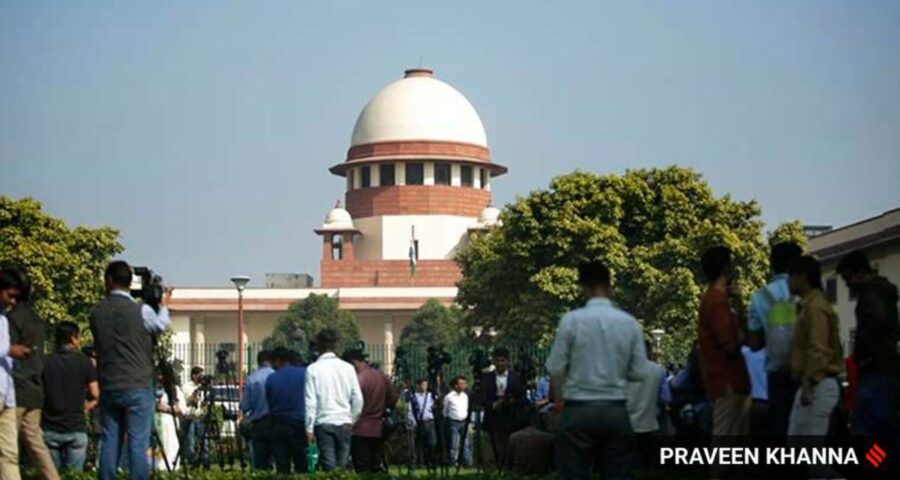Pointing out that the average rate of conviction under UAPA has been 2.19 per cent, the plea said that this shows that "prosecution under the UAPA is either initiated in 'bad faith', or the quality of the evidence is not sufficient…"
The Supreme Court on Wednesday issued notice to the Centre on a petition filed by some former IAS, IPS and IFS officers challenging the constitutional validity of certain provisions of the Unlawful Activities Prevention Act, 1967 (UAPA).
A bench headed by Chief Justice of India N V Ramana issued notice on the plea by former IAS officials Harsh Mander, Wajahat Habibullah, Amitabha Pande, Kamal Kant Jaiswal, Hindal Hyder Tyabji, M G Devasahayam, Pradeep Kumar Deb, Baldev Bhushan Mahajan, ex-IPS officer Julio Francis Ribeiro, Ish Kumar and former IFS officer Ashok Kumar Sharma.
The plea contends that the low rates of successful prosecution under the Act and the fact that citizens find themselves being incarcerated for a long period and some have even died in incarceration point to the fact that “the proviso to Section 43D(5) (which deals with the restrictions on grant of bail) is arbitrarily used to quell dissent than to achieve the actual objectives of the Act.”
Though it is not a preventive detention law, the stringency of UAPA provisions, especially with regard to bail, makes it almost akin to a preventive detention law without the protections of Article 22 being available, they said.
The petition said though the Act defines “terrorist act” as an act whereby terror is caused, it does not define what terror is. This will lead to arbitrary interpretations that affect the life and liberty of an individual and hence is required to be struck down, it said.
Pointing out that the average rate of conviction under UAPA has been 2.19 per cent, the plea said that this shows that “prosecution under the UAPA is either initiated in “bad faith”, or the quality of the evidence is not sufficient, bringing into question the entire process of “independent review” prior to grant of sanction.”
It urged the court to declare the proviso to Section 43D(5), as manifestly arbitrary and ultra vires Article 21 of the Constitution of India, direct to provide all persons accused under Chapter IV and Chapter VI of the UAPA all the materials that are placed before the sanctioning authority contemporaneously with providing the same to the sanctioning authority, direct the Government to provide the detailed sanction order containing reasons reflecting the independent review of the material by the sanctioning authority and to direct the Government to set up a suitable scheme for compensating people who are incarcerated under the UAPA and who are eventually acquitted, with the quantum of compensation increasing in proportion to the time spent in jail.
Source: Read Full Article


